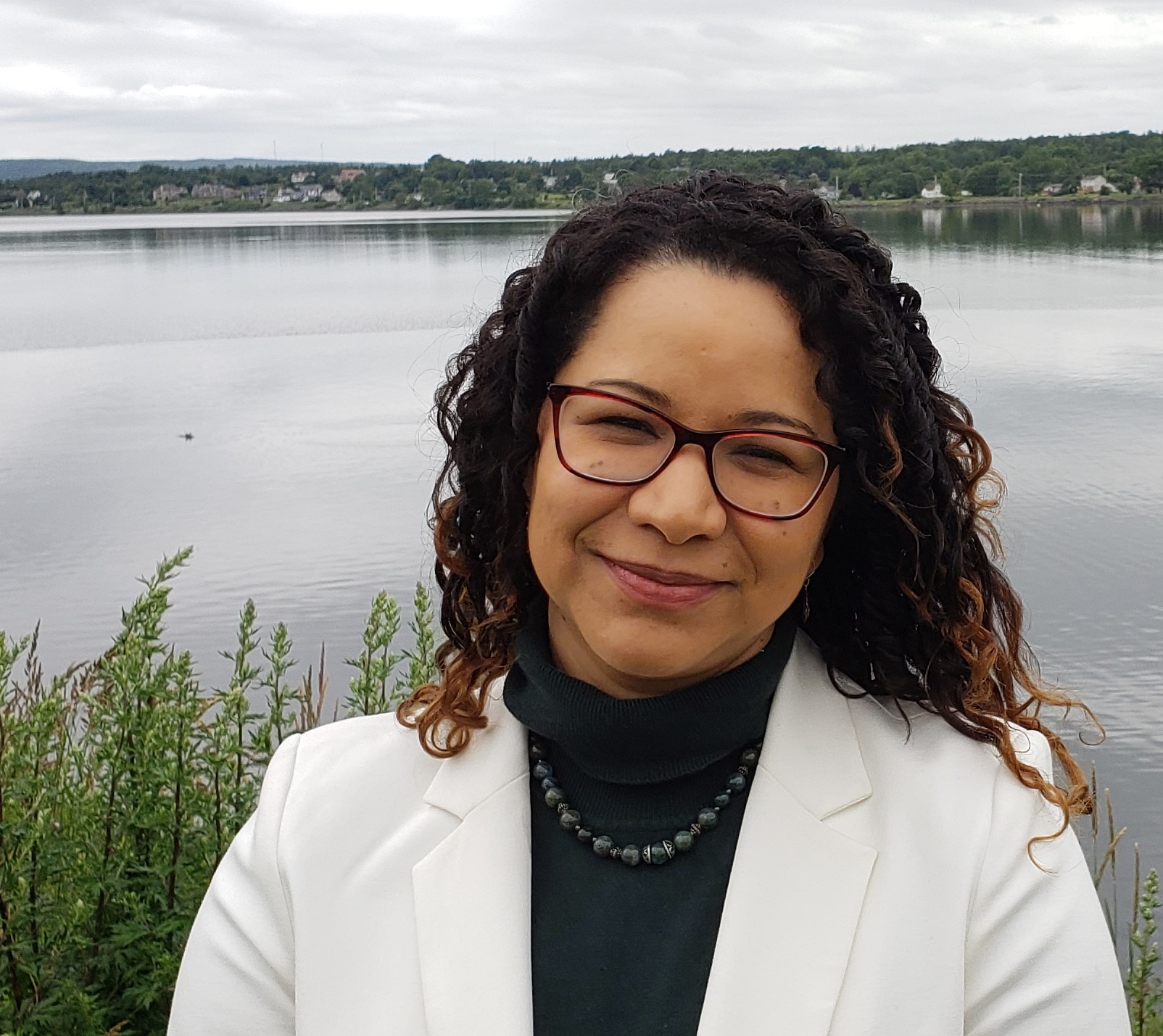
Dr. Lilian Navarro
GEOSCIENCES LAB INSTRUCTOR

What is your current job title, and what do you do? Where do you spend most of your workday?
I am currently a Lab Instructor of Geosciences in the Department of Math, Physics and Geology at Cape Breton University (CBU). My job involves a large range of activities including teaching laboratory classes, participating on committees for the university, department and professional societies, doing scientific research, peer reviewing, etc.
My workday fluctuates between teaching and working on my lab lessons, attending office hours, preparing lab materials, assignments and assessments, supporting students, attending in-person or virtual meetings, and participating in various initiatives and projects both inside and outside the University. My research interests have been focused on understanding sedimentary processes and their deposits in ancient deep-marine systems, particularly how sedimentological, stratigraphical, architectural, geochemical, and paleoenvironmental changes impacted those systems. I also travel to attend conferences, workshops, and for field trips. I have conducted fieldwork research in Venezuela and the southern Canadian Cordillera, and have visited numerous sites and cities in Canada, US, UK, and Chile for field excursions and conferences.
What education, training and past work experience do you have?
My education consists of a B.Sc. in Geological Engineering in Universidad Central de Venezuela (UCV), and M.Sc. and Ph.D. in Earth Sciences from University of Ottawa (uOttawa).
During my studies I worked as a teaching and research assistant in several courses including their field and/or lab components. After my Ph.D. I worked as a postdoctoral researcher in uOttawa, doing research and supporting undergraduate and graduate students in a research group. Following this, I worked contracts as a lab instructor/technologist at CBU. In addition, I have been volunteering and involved in great geoscience-related societies and organizations locally, regionally, nationally and internationally; for instance, currently I am the Secretary of the Canadian Federation of Earth Sciences, co-chair of the SEPM’s Deep-Water Research Group, co-leader in GeoLatinas, among other organizations.
What’s great about being an Earth Scientist?
What interests and abilities lend themselves well to an Earth Science career?
Some people might believe a profession in Earth Sciences is only for those passionate about rocks, dinosaurs, and outdoor adventures, or those whose parents or relatives already had jobs associated with Earth Sciences, or those who could not succeed in the basic Sciences. Contrary to those beliefs, the career paths and intentions for becoming an Earth Scientist are completely unique and extensive. For instance, I have always been interested in topics ranging from Sciences to Arts, Literature, and Education, but surprisingly while I accomplished many artistic endeavors, I was the first in my family who decided to pursue a Geology-related profession.
Studying and working in Earth Science gave me a profound appreciation and awareness of our planet in both holistic and empirical ways. I like that Earth Scientists typically develop and apply their skills in more than one field, making connections between Geology and other sciences such as Math, Physics, Biology, Geography, Chemistry, and even Engineering. I think there are opportunities for everyone to explore their natural curiosity, creativity, and enthusiasm for learning about one or several aspects of our Earth system and beyond. As well, you get to directly observe, measure, investigate, and gain a greater understanding of the geologic processes, risks and potential uses that affect our day-to-day activities, products and tools that we typically take for granted.
What advice would you give someone interested in an Earth Science career?
A career in Earth Science offers an abundance of great opportunities to work within or across multiple related sciences associated with our Earth system such as Volcanology, Sedimentology, Paleontology, Hydrogeology, Seismology, Geophysics, Geomorphology, Geochemistry, Oceanography, Mineralogy, Soil Sciences, among many others.
You can do field, lab and/or office work in different interesting, remarkable and awe-inspiring places and landscapes around the world, you will have vivid memories and thrilling experiences to cherish, and your work will have great relevance and impact to the present and future of local, regional and global communities. As an Earth Scientist, you could be working closely or collaboratively in academia, government, current and alternative energy industries, technology, agriculture, sustainable mining, public health, federal laboratories, museums, jewelry business, law and policies, and non-profit organizations. It is humble and wonderful to realize that Geology is in everything and everywhere!
